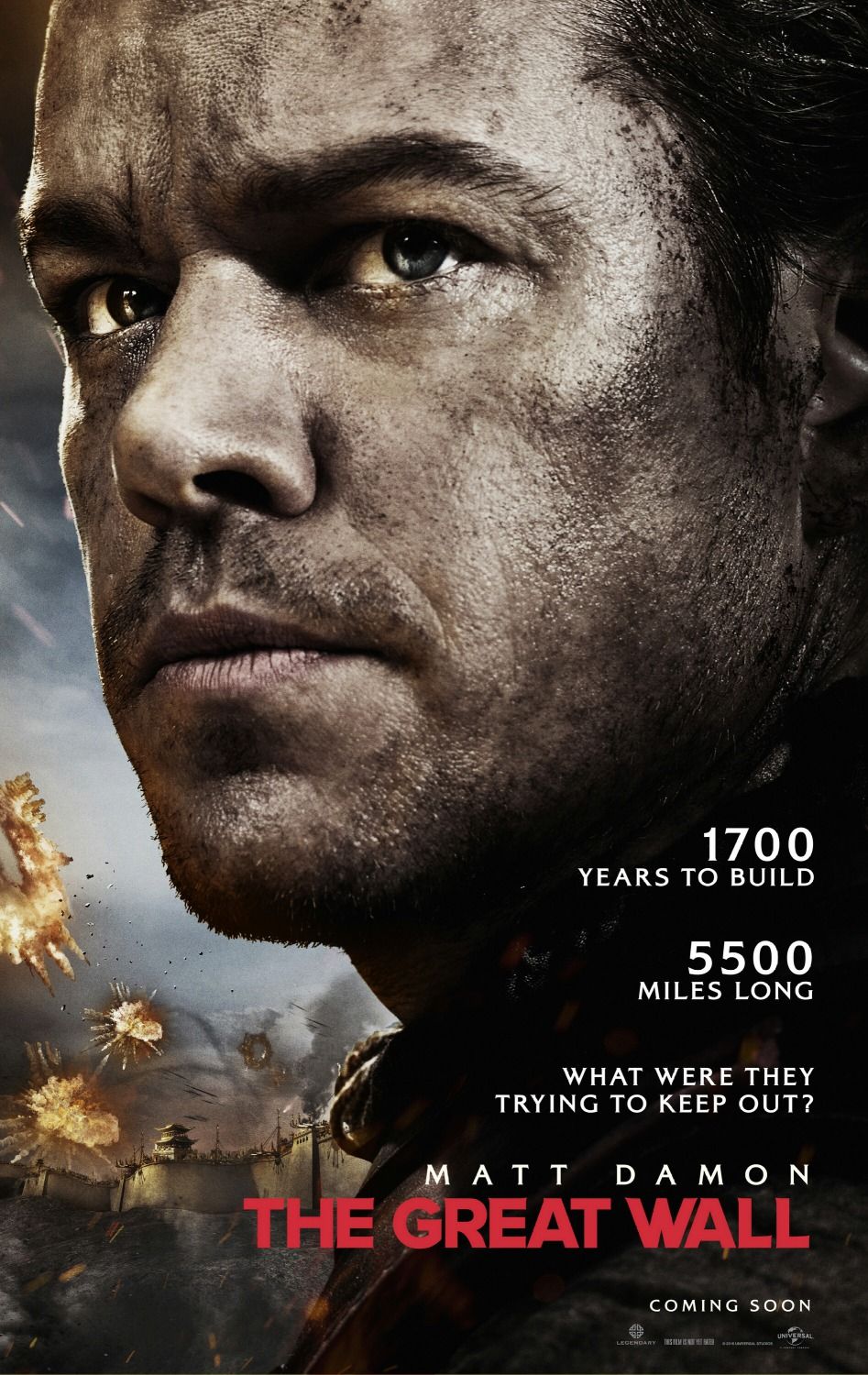Across his two decade career, Matt Damon has proven to be a bankable box office star. In the last few years alone, The Martian opened with $54.3 million in 2015, and his Jason Bourne return in 2016 made $59.2 million during its first three days. But his most recent vehicle, The Great Wall, has failed to pick up the same kind of momentum.
It earned a solid but lower-than-anticipated $225 million overseas, and the Zhang Yimou-directed action epic has floundered domestically. It's notched a lackluster $34.8 million in North America, and it's overwhelmingly poor critical reviews won't help knock it back into favor. Industry pundits have already tied its disappointing returns to a less than promising future for U.S.-China co-productions — an unfortunate outcome considering its $135 million price tag makes it the most expensive production shot entirely in China.
Making matters worse, THR has now reported that the film will likely end up with losses of more than $75 million, and distributor Universal Pictures will be on the hook for at least $10 million. According to THR, the studio funded only 25 percent of The Great Wall's production budget, with the rest coming in equal parts from Legendary Entertainment, China Film Group, and Le Vision Pictures. But Universal also covered the movie's global marketing expenses, conservatively estimated at $80 million-plus. The Great Wall is expected to top out at $320 million globally, which is far below what investors had expected for a project targeted to the two biggest movie markets in the world.
Luckily for Universal, its share in the deficit will likely be curtailed by ancillary revenue, including a 10 percent distribution fee from all theatrical revenue (between 40 percent and 50 percent of the total box office), box office rentals, TV, and home entertainment, the latter of which THR pegs at up to $40 million internationally.
Still, The Great Wall's failure has largely reinforced the skepticism that has long trailed Sino-American pictures, despite the potentially massive market opportunities they present. Past tentpoles like Paramount's Transformers: Age of Extinction and Disney's Iron Man 3, were briefly planned as co-prods before their producers realized the depth of Chinese involvement and script control, leaving collaborative efforts to low to mid-budget period pieces including World War II drama The Flying Tiger and '30-set Edge of the World.
The Great Wall, in particular, caught flack for framing Damon's character as a white savior of the Chinese world, so perhaps more culturally sensitive efforts will find greater success. Alas, The Great Wall will just make it that much more difficult to convince studios to take the risk.
Source: THR



